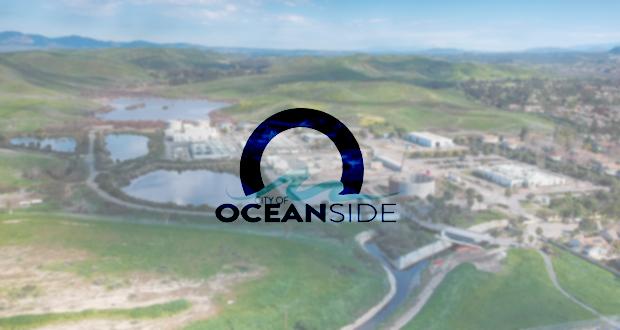Oceanside CA— The City of Oceanside has announced the release of its 2018 Water Quality Report. This report shows that the City system continues to meet or exceed all state and federal drinking water standards. City staff collects water quality samples to test for over 90 different substances throughout the year to ensure that the City’s drinking water meets the highest standards for quality and safety.
Samples from drinking water plants and in the City’s distribution system were analyzed and reported in the 2018 Water Quality Report. “Oceanside’s drinking water is closely monitored to ensure the highest quality of water is delivered to our customers,” said Water Utilities Director Cari Dale. “Our highest priority is delivering safe and reliable water.”
The Report also includes information on the City’s Water Sources, important health information, and source water assessment summaries. Information on total coliform, fluoride, and lead is also included. The 2018 water monitoring in the City did not detect lead and is compliant with lead regulations.
The report contains information about the results of analytical tests of the drinking water quality and how these results compare to state and federal standards.
The full report is online at www.GreenOceanside.org where it can be viewed online or printed. The report is also available at the Water Administration counter at City Hall South. A copy can also be requested by emailing osidecustomercare@oceansideca.org or calling (760) 435-5800.
The City of Oceanside also announced that it will receive $1.5 Million in funding from the Bureau of Reclamation’s WaterSMART Water and Energy Efficiency Grant, subject to Federal appropriations. The funding will be used to construct Phase 1 of a new Advanced Metering Infrastructure (AMI) network, including retrofitting 21,689 existing meters and integrating the AMI system with the existing customer interface platform. Once the project is complete, 49% of the City’s meters will be connected to the AMI network. The AMI system will provide real-time information to customers about leaks, breaks, and other unusual consumption patterns. By implementing the project, an estimated annual water savings of 1,155 acre-feet is expected. The water savings from this project will have broad benefits in an area that has historically experienced water shortages and drought, relies on purchased water, and is projecting population and water demand increases. “We want to thank the Bureau for their support,” said Mayor Peter Weiss, “Automating our meters will allow Oceanside to increase efficiency, save water and decrease demand on expensive imported water.”
To be eligible for funding, work must be completed by September 2021 and help the City conserve water. The project is included in the City’s proposed FY 19/20 Capital Improvement Budget, which was considered by the Oceanside City Council in June. The City’s cost-share requirement for Phase 1 is $7.4 Million, with total project costs estimated at $15.3 Million upon completion.
Reclamation selected forty-five projects from projects based on two categories. In the first category, 28 projects from 11 states were selected to share $7.5 million with each project receiving up to $300,000 in federal funding and having a completion time-frame of less than two years. The second category consists of 17 projects from seven states, sharing $21.5 million. These projects are receiving up to $1.5 million in federal funding and will be completed in three years.
The Oceanside project builds upon several earlier partnerships between the Bureau of Reclamation and the City. In 2012, the Bureau provided $3.35 Million to fund a portion of the cost of the Mission Basin Groundwater Purification Facility; in 2016, the Bureau provided $35,905 in grant funding to operate a pilot plant to test technologies to recover brine for potable use; and previously in 2019, the Bureau provided $2.623 million to construct two extraction wells within the Mission Basis, as well as brine minimization treatment components.
The City Council has set an ongoing goal to develop 50% of the City’s water supplies locally by 2030. The citywide plan to achieve the supply goal includes an active water use efficiency program, an Indirect Potable Recharge Project in the Mission Basin, as well as recycled water pipelines supplying the El Camino Real corridor and the agricultural area of Morro Hills. “We are grateful for the support of the Bureau of Reclamation,” said Cari Dale, Water Utilities Director. “The ongoing support from the Bureau has helped Oceanside increase water supply reliability into the future.”
2018 Oceanside Water Quality Report Released-Water Utilities to Receive $1.5 Million in Grant Funding
July 3, 2019




